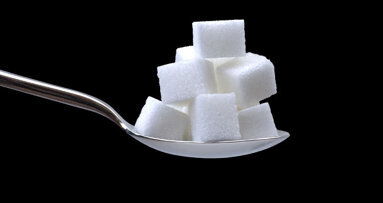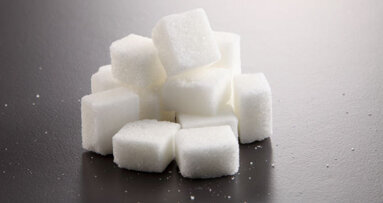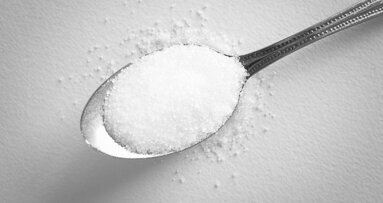LONDON, UK: Lately, there have been increasing efforts to curb Britain’s high sugar consumption. Although the British Dental Association (BDA) has welcomed Tesco’s recent announcement that it is banning high-sugar drinks from its shelves, the association has called for action that goes further than “symbolic” concessions and urged government to follow the recommendations of the report by the Scientific Advisory Committee on Nutrition (SACN).
“Finally we’re seeing big retailers waking up to the sugar crisis. That’s progress, but these symbolic gestures should not disguise the fact supermarkets are still banking on the nation’s sweet tooth,” Dr Mick Armstrong, Chair of the BDA, said.
“The recent obituaries for Capri Sun, Ribena or Percy Pigs are designed first and foremost to fill up column inches and Twitter feeds. PR stunts should not blind government, parents or health practitioners to the need for real, co-ordinated action to address Britain’s addiction to sugar,” remarked Armstrong on Tesco’s plans to take added-sugar drinks out of the children’s juice department starting in September.
Tesco’s plans echo recent recommendations in the Carbohydrates and Health report, published by SACN on 17 July, which advises reducing the daily energy intake of sugars from 10 to 5 per cent. The report also recommends that consumption of sugar-sweetened drinks be minimised and of fibre be increased.
According to the health experts, 5 per cent of daily energy intake is the equivalent of 19 g or five sugar cubes for children aged 4–6, 24 g or six sugar cubes for children aged 7–10, and 30 g or seven sugar cubes for those aged 11 and over, based on average diets.
The SACN findings, established by a group of independent experts that advises government on matters relating to diet, nutrition and health, offer the first wide-ranging look at the relationship between sugar consumption and health outcomes in the UK since the 1990s.
Other national statistics have shown that British children especially are consuming unhealthy amounts of free sugars—the nutrient-free refined sugar added to products such as sweetened drinks—in their daily diet. At 30 per cent, soft drinks accounted for the majority of sugar in the diet of 4- to 10-year-olds, the 2014 National Diet and Nutrition Survey found.
Soft drinks and juices are especially harmful to the teeth, since they tend to be very acidic, which makes the teeth particularly vulnerable to both dental decay and tooth erosion. Aside from posing oral health risks, a diet rich in free sugars has been linked to obesity and Type 2 diabetes, among other conditions.
With reference to the SACN recommendations, the BDA has called for radical measures to cut Britain’s sugar intake, including lowering the recommended daily allowance, and action on marketing, labelling and sales taxes. The BDA has launched an online petition addressed to Prime Minister David Cameron, inviting both health professionals and patients to lend support to SACN’s proposals at Change.org.
“We have an historic opportunity here to end Britain’s addiction to sugar. The government now has the evidence and a clear duty to send the strongest possible signal to the food industry, that while added sugar might be helping their sales, it is hurting their customers,” Armstrong said.
The complete SACN report can be accessed at https://www.gov.uk/government/publications/sacn-carbohydrates-and-health-report.
LONDON – Sugars in the diet should make up no more than 3 per cent of total energy intake to reduce the significant financial and social burdens of ...
NEWCASTLE UPON TYNE – A new study, which was commissioned by the World Health Organization (WHO), has provided new evidence that the reduction of the ...
LONDON, UK: The Alliance for a Cavity-Free Future (ACFF) is a not-for-profit organisation formed by a group of dental professionals. According to the ACFF, ...
DUNDEE, Scotland: As the global health community marks World Mental Health Day today, the dental profession is being urged to confront a pressing concern ...
London, UK: The British Dental Association (BDA) has said that it will work with the new Conservative cabinet and members of parliament towards a better ...
LONDON, UK: Dentists play a key role in identifying conditions such as anorexia nervosa, bulimia and gastro-oesophageal reflux disease. According to a new ...
RUGBY – Although the number of cancers linked to the human papillomavirus (HPV) has increased in recent years, especially among men, HPV vaccination ...
The sugar tax is finally upon us, but are corner shops or supermarkets for that matter likely to worry about this potentially threatening change to their ...
RUGBY, UK: In summer, people around the world poured a bucket of ice-cold water over their heads as part of a campaign initiated by the ALS (amyotrophic ...
LONDON – In order to tackle and reverse the obesity and diabetic epidemic, health experts from across the globe have formed a group called Action on ...
Live webinar
Tue. 24 February 2026
6:00 pm UTC (London)
Prof. Dr. Markus B. Hürzeler
Live webinar
Tue. 24 February 2026
8:00 pm UTC (London)
Prof. Dr. Marcel A. Wainwright DDS, PhD
Live webinar
Wed. 25 February 2026
4:00 pm UTC (London)
Prof. Dr. Daniel Edelhoff
Live webinar
Wed. 25 February 2026
6:00 pm UTC (London)
Live webinar
Thu. 26 February 2026
1:00 am UTC (London)
Live webinar
Tue. 3 March 2026
4:00 pm UTC (London)
Dr. Omar Lugo Cirujano Maxilofacial
Live webinar
Wed. 4 March 2026
1:00 am UTC (London)
Dr. Vasiliki Maseli DDS, MS, EdM



 Austria / Österreich
Austria / Österreich
 Bosnia and Herzegovina / Босна и Херцеговина
Bosnia and Herzegovina / Босна и Херцеговина
 Bulgaria / България
Bulgaria / България
 Croatia / Hrvatska
Croatia / Hrvatska
 Czech Republic & Slovakia / Česká republika & Slovensko
Czech Republic & Slovakia / Česká republika & Slovensko
 France / France
France / France
 Germany / Deutschland
Germany / Deutschland
 Greece / ΕΛΛΑΔΑ
Greece / ΕΛΛΑΔΑ
 Hungary / Hungary
Hungary / Hungary
 Italy / Italia
Italy / Italia
 Netherlands / Nederland
Netherlands / Nederland
 Nordic / Nordic
Nordic / Nordic
 Poland / Polska
Poland / Polska
 Portugal / Portugal
Portugal / Portugal
 Romania & Moldova / România & Moldova
Romania & Moldova / România & Moldova
 Slovenia / Slovenija
Slovenia / Slovenija
 Serbia & Montenegro / Србија и Црна Гора
Serbia & Montenegro / Србија и Црна Гора
 Spain / España
Spain / España
 Switzerland / Schweiz
Switzerland / Schweiz
 Turkey / Türkiye
Turkey / Türkiye
 UK & Ireland / UK & Ireland
UK & Ireland / UK & Ireland
 International / International
International / International
 Brazil / Brasil
Brazil / Brasil
 Canada / Canada
Canada / Canada
 Latin America / Latinoamérica
Latin America / Latinoamérica
 USA / USA
USA / USA
 China / 中国
China / 中国
 India / भारत गणराज्य
India / भारत गणराज्य
 Pakistan / Pākistān
Pakistan / Pākistān
 Vietnam / Việt Nam
Vietnam / Việt Nam
 ASEAN / ASEAN
ASEAN / ASEAN
 Israel / מְדִינַת יִשְׂרָאֵל
Israel / מְדִינַת יִשְׂרָאֵל
 Algeria, Morocco & Tunisia / الجزائر والمغرب وتونس
Algeria, Morocco & Tunisia / الجزائر والمغرب وتونس
 Middle East / Middle East
Middle East / Middle East


















































To post a reply please login or register